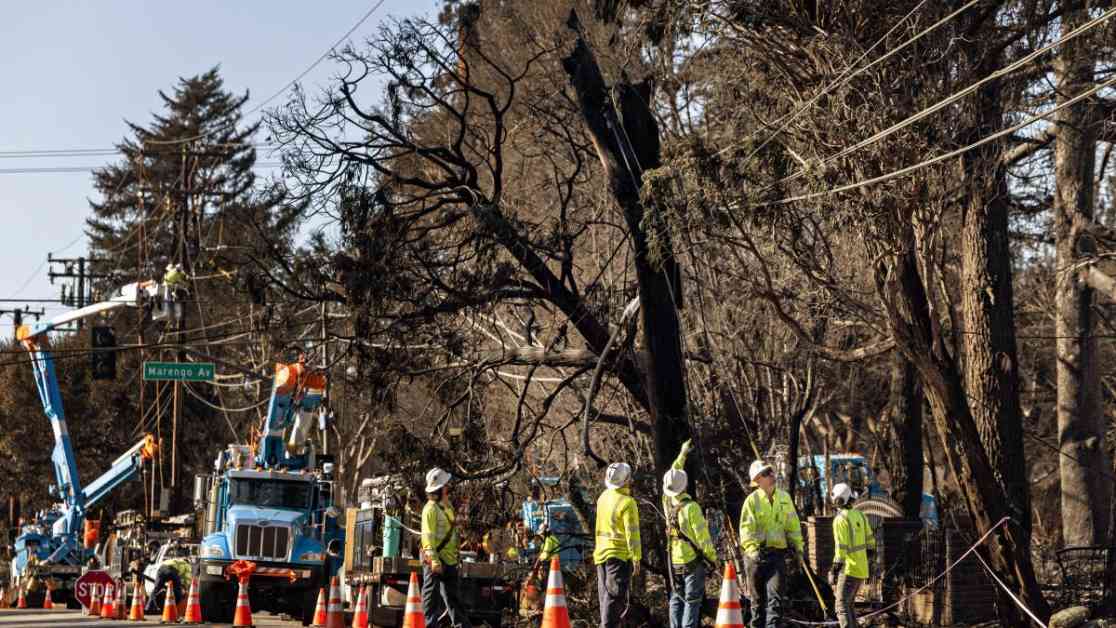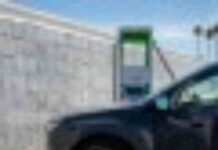**Electric Vehicle Concerns Rise Amid Los Angeles Fires**
In a scenario that many Californians fear, the recent devastating fires in Los Angeles County have brought to light a new concern for electric vehicle (EV) owners – power outages. Imagine being in a situation where you plug in your EV at night, only to wake up to a power line down due to high winds, leaving your charger useless and your battery barely charged to 25%. To make matters worse, a report of a fire prompts an evacuation order, leaving you stranded with limited power and no alternative vehicle. This nightmare scenario is a reality for some California car buyers, highlighting the potential vulnerabilities of EVs during emergencies.
### **California Residents Express Fears Amid Evacuations**
Amidst the chaos of the fires, California residents like Los Angeles attorney Matthew Butterick and Berkeley resident Val Cipollone are vocalizing their concerns about the limitations of EVs in emergency situations. Butterick pointed out that traditional gasoline cars have the advantage of being able to evacuate in any direction and refuel easily, while EVs may face long lines at charging stations and unreliable access to the electric grid during emergencies. Cipollone, who owns a Nissan Leaf EV, expressed uncertainty about how far she may need to drive in a disaster scenario, prompting her to consider switching to a hybrid vehicle for increased flexibility.
### **Shift in Car Buying Trends: Hybrids on the Rise**
The concerns raised by Butterick and Cipollone reflect a broader trend in the automotive industry, where traditional fossil-fueled car sales are declining while EVs and hybrids are gaining popularity. According to data from automobile company Edmunds, hybrid car sales surged by 63% in 2023 and 29% in 2024, outpacing the growth of EV sales during the same period. While EVs were once seen as the future of transportation, mainstream buyers are now gravitating towards hybrids due to their range and convenience, especially in emergency situations like the recent fires in Los Angeles.
### **Challenges and Opportunities for EV Adoption**
Despite the current surge in hybrid sales, the future of EV adoption remains promising as prices decline and public charging infrastructure expands. Analysts like Jessica Caldwell from Edmunds emphasize that owning an EV requires a different level of planning and infrastructure compared to traditional vehicles, including setting up home chargers and navigating charging station availability. While federal initiatives to install public chargers along highways and California’s plans to subsidize chargers at multi-family dwellings show progress, there is still a reluctance among some consumers to fully embrace EVs due to lifestyle changes and infrastructure concerns.
### **Hybrids: Bridging the Gap in Powertrain Technology**
As auto companies like Ford and Hyundai pivot towards hybrid vehicles to cater to consumer preferences, the market is seeing a wave of new hybrid models entering the scene in 2025. With options ranging from traditional hybrids to plug-in hybrids, consumers have more choices for eco-friendly vehicles that offer improved mileage and reduced emissions. Toyota’s dominance in the hybrid market, along with the growing popularity of models like the Camry and RAV4 hybrids, highlights the shift towards hybrid powertrains as a viable alternative to traditional gasoline cars and full electric vehicles.
### **Conclusion: A Balancing Act Between Convenience and Sustainability**
In light of the recent challenges faced by EV owners during the Los Angeles fires, the debate between convenience and sustainability in car buying decisions continues to evolve. While EVs promise a greener future, the practical concerns raised by consumers like Butterick and Cipollone underscore the importance of considering hybrid options for greater flexibility and peace of mind in emergency situations. As the automotive industry embraces a diverse range of powertrain technologies, consumers are presented with a spectrum of choices that balance environmental impact with real-world convenience.
As we navigate the changing landscape of transportation and energy, the decision to go electric or hybrid ultimately rests on finding the right balance between sustainability, resilience, and personal lifestyle preferences. Whether you’re a die-hard EV enthusiast or a hybrid convert, the road ahead is paved with choices that reflect our collective commitment to a greener, more sustainable future.





















